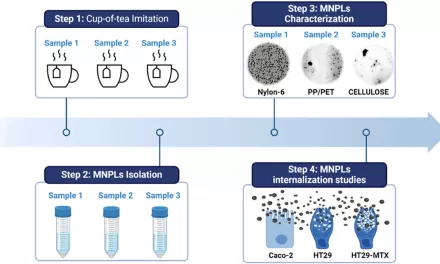In Europe, approximately 2 million people suffer from chronic inflammatory bowel diseases (IBD), a condition whose incidence has been steadily rising in recent decades. However, a small portion of the population carries a genetic variant offering natural protection against these debilitating conditions, a phenomenon recently explored in groundbreaking research published in eBioMedicine.
This study, led by the Institute of Clinical Molecular Biology (IKMB) at Kiel University, combines the expertise of researchers in genetics, medicine, and archaeology. Prof. Dr. Ben Krause-Kyora, the lead author, explains that this protective gene variant was prevalent among the first sedentary farmers in Anatolia and was introduced to Europe through ancient migration.
The study, part of the ROOTS and Precision Medicine for Chronic Inflammatory Diseases (PMI) Clusters of Excellence, analyzed the genetic data from 251 human genomes spanning 14,000 years across Europe and Anatolia. The team zeroed in on the IL23R gene, a critical player in immune regulation.
The findings indicate that the IL23R variant modulates the immune response, preventing excessive inflammation without compromising overall immune function. This variant reduces the risk of chronic inflammation, making it beneficial for protection against IBD. Individuals with this variant also enjoy a “win-win” situation, as the immune system remains intact while safeguarding against infections, as noted by Prof. Dr. Dr. Stefan Schreiber, a co-author and gastroenterologist at the University Medical Center Schleswig-Holstein.
Approximately 18% of individuals in Anatolian farming communities carried this gene variant about 10,000–12,000 years ago, coinciding with the transition from Paleolithic hunting and gathering to Neolithic farming. The researchers suggest that this gene provided protection from the more frequent inflammatory reactions that emerged with the shift to settled agricultural life.
The gene variant’s spread across Europe over the past 8,000 years mirrors the prevalence of IBD across the continent. While the variant is most common in Southwestern Europe, it is least prevalent in Northeastern Europe, correlating with the regional prevalence of IBD. Today, about 5% of Europeans still carry the IL23R variant.
What makes this discovery particularly noteworthy is its implications for modern medicine. “We now understand why a reduced function of IL23R offers protection against chronic inflammation,” says Schreiber. This understanding has been instrumental in the development of effective IBD treatments with minimal side effects, drawing inspiration from nature to create new therapies.
This research demonstrates the power of evolutionary medicine, illustrating how our genetic heritage can be harnessed to address chronic diseases in today’s world.
For more information, refer to the study: Ben Krause-Kyora et al., “Neolithic introgression of IL23R-related protection against chronic inflammatory bowel diseases in modern Europeans,” eBioMedicine (2025).
Disclaimer: The content of this article is based on the study published in eBioMedicine and reflects the interpretation of the researchers involved. While the study’s findings are promising, further research is needed to fully understand the application of these genetic insights in modern therapies. Always consult a medical professional before making any health-related decisions.











